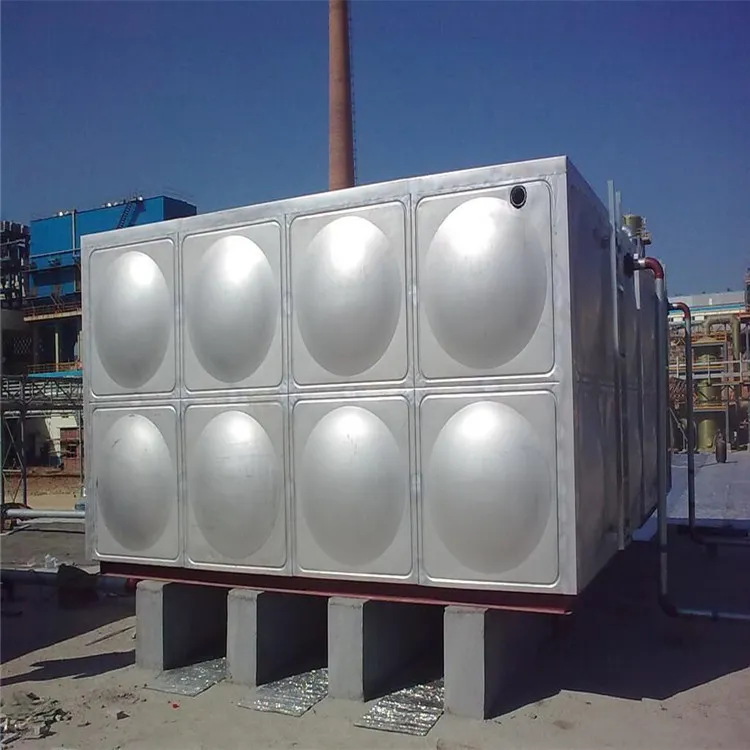loading...
- No. 9, Xingyuan South Street, Dongwaihuan Road, Zaoqiang County, Hengshui, Hebei, China
- admin@zjcomposites.com
- +86 15097380338
- Welcome to visit our website!
Effective Use of FRP Vessels in Innovative Water Treatment Solutions for Enhanced Purification
FRP Vessel for Water Treatment An Innovative Solution for Clean Water
In the quest for clean and safe drinking water, various technologies have emerged to enhance the efficiency of water treatment processes. Among these innovations, the use of Fiber Reinforced Plastics (FRP) vessels has gained significant attention. These vessels are rapidly becoming the preferred choice for water treatment applications, owing to their numerous advantages, including durability, lightweight nature, corrosion resistance, and cost-effectiveness.
What is FRP?
Fiber Reinforced Plastic (FRP) is a composite material made of a polymer matrix reinforced with fibers, typically glass or carbon fibers. This combination allows for the creation of a material that possesses the beneficial characteristics of both its components. The resulting product is strong, lightweight, and resistant to various chemicals and environmental conditions. These features make FRP an ideal choice for manufacturing vessels used in water treatment processes.
Advantages of FRP Vessels
1. Corrosion Resistance One of the most critical challenges in water treatment is the corrosive nature of various chemicals used in the process. Traditional materials like steel can rust and degrade over time, leading to costly replacements and maintenance. FRP vessels, on the other hand, are resistant to corrosion, which significantly extends their lifespan and reduces operational costs.
2. Lightweight The lightweight design of FRP vessels makes them easier to handle, transport, and install. This aspect is particularly advantageous in large-scale water treatment facilities where the installation of heavy equipment can pose logistical challenges.
3. Durability and Strength Although lightweight, FRP vessels boast impressive strength and durability. They can withstand high pressures and extreme temperatures, making them suitable for a range of applications, from municipal water treatment to industrial processes.
4. Cost-Effectiveness Initially, the cost of FRP vessels may seem higher compared to conventional materials. However, considering their longevity, reduced maintenance requirements, and operational efficiency, they often prove to be more cost-effective in the long run. The initial investment can yield significant savings, especially in large-scale applications.
frp vessel for water treatment

5. Customizability FRP technology allows for a high degree of customization in terms of design, size, and application-specific features. This flexibility enables engineers to develop tailored solutions that meet the specific needs of different water treatment processes.
Applications of FRP Vessels
FRP vessels can be employed in various water treatment applications, including
- Filtration Systems These vessels are commonly used in sand filters, activated carbon filters, and other filtration systems to remove impurities from water.
- Chemical Storage FRP vessels are ideal for storing chemicals used in water treatment processes, such as chlorine and coagulants, owing to their chemical resistance.
- Biological Treatment They are also used in biological reactors where microorganisms are employed to treat wastewater.
- Desalination In the desalination process, FRP vessels can be utilized for both brine disposal and storage of freshwater, providing a reliable solution in coastal areas.
Conclusion
As the global population grows and water scarcity becomes an increasingly pressing issue, the need for efficient, durable, and cost-effective water treatment solutions becomes more critical. FRP vessels represent a significant advancement in this field, offering a combination of benefits that address many of the challenges faced by traditional materials. Their versatility in applications, coupled with their superior performance characteristics, positions FRP vessels as a key component in the ongoing effort to ensure access to clean, safe drinking water for communities around the world. As technology continues to evolve, we can expect to see further innovations in FRP materials, enhancing their role in sustainable water treatment solutions.
-
GRP Structures: The Future of Lightweight, High-Performance EngineeringNewsJun.20,2025
-
FRP Water Tank: High-Performance Storage for Corrosive and Clean Water SystemsNewsJun.20,2025
-
FRP Square Tube: The New Industry Standard for Chemical and Structural ApplicationsNewsJun.20,2025
-
FRP Pultruded Profiles: The Ultimate Choice for Lightweight Structural StrengthNewsJun.20,2025
-
FRP Handrails: The Safer, Smarter, and Stronger Choice for Modern InfrastructureNewsJun.20,2025
-
FRP Grating: The Smart Solution for Durable, Lightweight Industrial FlooringNewsJun.20,2025
-
Why Choose a Galvanized Water Tank for Your Storage NeedsNewsMay.21,2025
